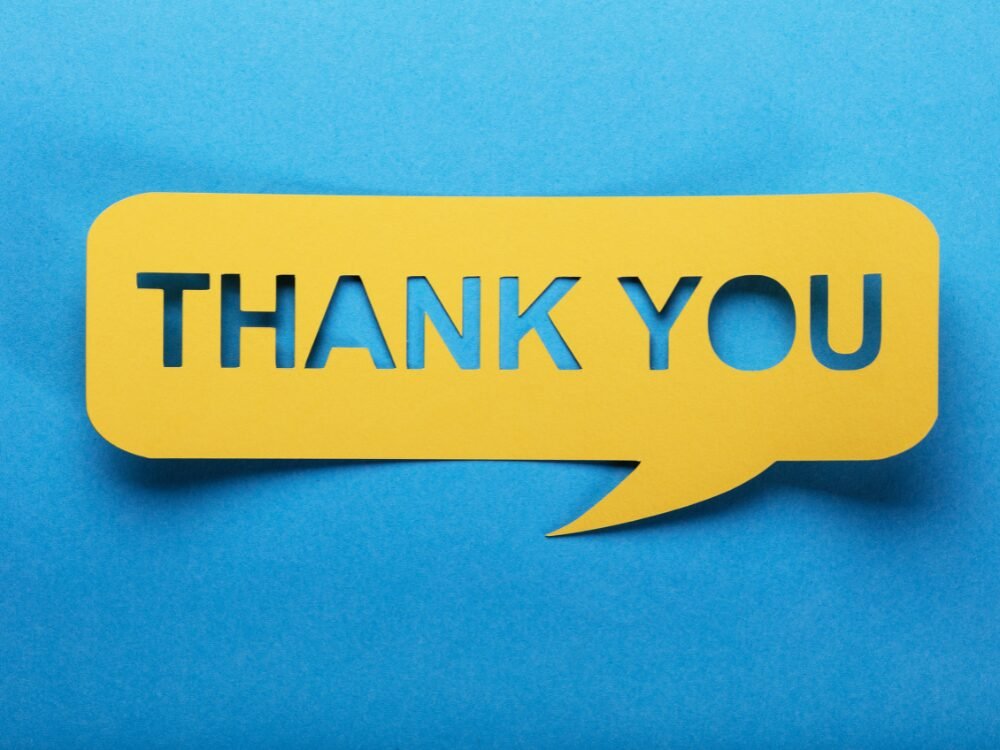Residency Interview Prep: A Simple Approach
If you’re unsure how to get started with residency interview prep (or tried to start but are feeling overwhelmed by the endless resources on the
Residency Interview Prep: Single Sessions & Packages Available – Reserve Yours Today!

A thoughtful and personalized post-interview thank you letter can reinforce the positive impression you made during your interview and showcase your professionalism beyond the formal interview setting.
A common pitfall is mentioning ranking intentions too early in the season. Unless you’re interviewing in mid-January or later, avoid making ranking statements. You may receive additional interview invitations that change your preferences, and every year, applicants face the awkward situation of having told a program they’re ranking them #1, only to change their mind later.
A well-crafted thank you note typically consists of 3-4 paragraphs.
Begin your note with a strong opening paragraph thanking the interviewer for their time, specifically mentioning your interview date. Reiterate your interest in the program, incorporating a specific detail from the interview that reinforced your enthusiasm.
Paragraphs 2 & 3 should focus on meaningful connections from your interview. Highlight 2-3 specific topics you discussed and reflect thoughtfully on these conversations. Perhaps the discussion helped deepen your understanding of the program’s unique attributes, provided valuable insights about residency training, or furthered your understanding of a particular clinical or research area. This is your opportunity to demonstrate active engagement and genuine interest while making connections between the program’s offerings and your professional goals.
Your closing paragraph should maintain enthusiasm while being concise and professional. Reiterate your appreciation and interest in the program, ending on a positive note that leaves a lasting impression.
Finally…
Don’t feel disheartened if you don’t receive a response! Some programs have policies limiting post-interview communication, and others choose not to respond to thank you letters to avoid showing bias. A thoughtfully written thank you note can only help—or at worst, remain neutral—in your application process.
If you’re unsure how to get started with residency interview prep (or tried to start but are feeling overwhelmed by the endless resources on the
How to Prepare for Residency SOAP: Personal Statement and LoR Tips IMPORTANT: Don’t reach out to programs via email or phone during SOAP—it’s an NRMP
Post-Match SOAP: A Step-By-Step Guide For unmatched residency applicants, SOAP week is a fast-paced, high-pressure opportunity to secure a position—essentially a mini-match on hyperspeed. Here’s
The letter of intent is a final, meaningful opportunity to connect with your top program(s) before match day. More than just expressing interest, it’s a
A thoughtful and personalized post-interview thank you letter can reinforce the positive impression you made during your interview and showcase your professionalism beyond the formal
While letters of interest have been (an optional) part of the match process for a long time, there’s some skepticism about whether they will be
Authenticity during residency interviews is key to your success–but it’s hard to be yourself if you’re nervous and unprepared! These strategies will help improve your
If you’re applying to the NRMP match as an IMG, you’ve likely encountered the terms “ECFMG Certification” and “ECFMG Verification.” Understanding the distinctions between these
Curious about what goes into a strong LoR for medical residency? An effective letter of recommendation communicates details about all or most of the following
The residency personal statement is an incredibly important aspect of your application, and there is tremendous pressure to “get it right.” All too often, this
The MSPE (Medical School Performance Evaluation) is an important component of your ERAS Application. While traditionally written by medical school deans or faculty members, some
Reddit is a major social media platform for IMGs. Here’s a list of some commonly asked questions in IMGreddit, a popular sub with 42k+ members.